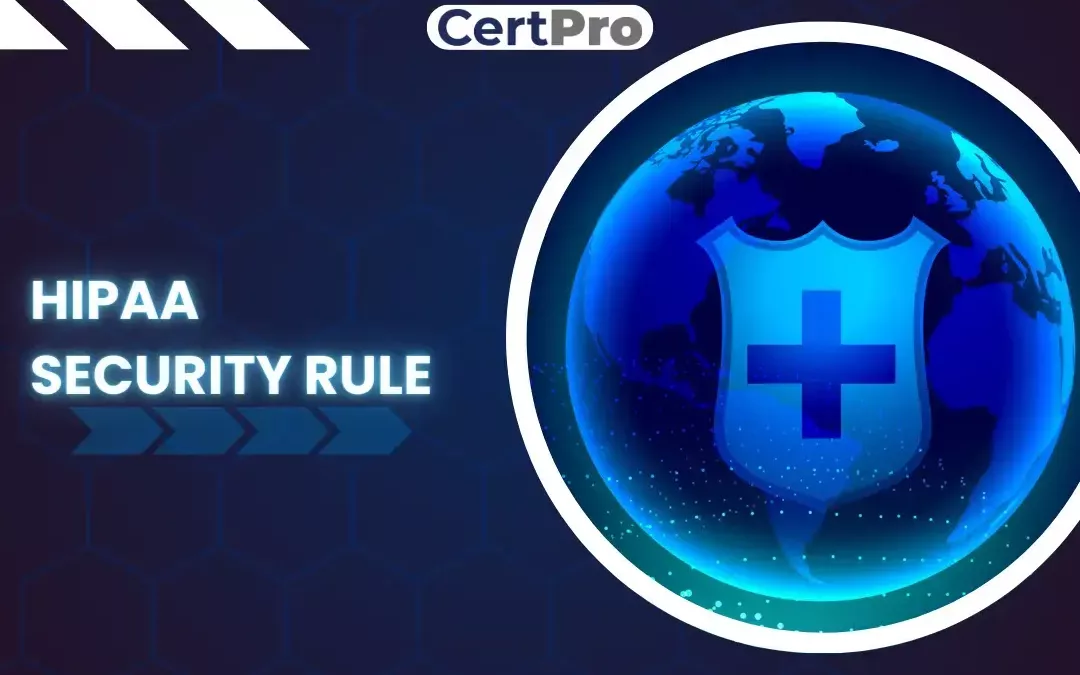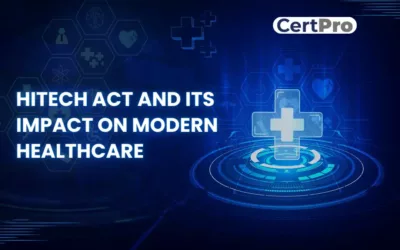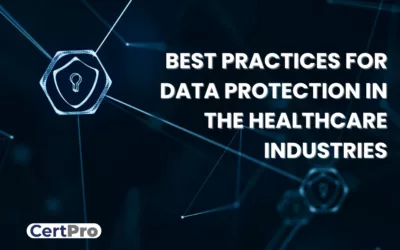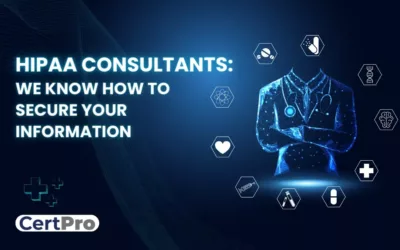In this Digital age, the protection of sensitive healthcare data is of paramount importance. The Health Insurance Portability and Accountability Act of 1996 (HIPAA) is vital legislation in the United States that addresses the privacy and security of Protected Health Information (PHI). Among its provisions, the HIPAA Security Rules specifically focus on establishing standards for protecting electronic PHI (ePHI).
The Health Insurance Portability and Accountability Act (HIPAA) Security Rule serves as a crucial framework for healthcare organizations to protect and secure patients’ sensitive data.
The HIPAA Security Rules set forth the requirements that covered entities, such as healthcare providers, health plans, and healthcare clearinghouses, must follow to ensure the confidentiality, integrity, and availability of ePHI. It complements the HIPAA Privacy Rule, which governs the use and disclosure of PHI. This Article aims to provide a comprehensive overview of the HIPAA Security Rules and the implications they hold for covered entities and business associates.
WHAT IS THE HIPAA SECURITY RULE AND ITS SCOPE?
The HIPAA Security Rule refers to a set of regulations established under the Health Insurance Portability and Accountability Act (HIPAA). It is a component of HIPAA that focuses on the protection of electronic protected health information (ePHI). The Security Rule outlines the standards and requirements that organizations must follow to ensure the confidentiality, integrity, and availability of ePHI.
The scope of the HIPAA Security Rules is to establish a comprehensive framework for safeguarding electronic protected health information (ePHI) within the healthcare industry. It applies to covered entities and their business associates, ensuring the protection of sensitive patient data.
- Covered Entities: The Security Rule applies to healthcare providers, including hospitals, doctors, clinics, pharmacies, and nursing homes. Additionally, it covers health plans provided by HMOs, government health initiatives like Medicare and Medicaid, and health insurance firms. Healthcare clearinghouses, which process healthcare transactions, are also considered covered entities under the Security Rule.
- Business Associates: The Security Rule extends its reach to business associates of covered entities. Business associates are individuals or organizations that perform certain functions or activities on behalf of covered entities involving ePHI. Examples of business associates include medical billing companies, IT service providers, cloud storage providers, and transcription services.
- Electronic Protected Health Information (ePHI): The Security Rule specifically focuses on protecting ePHI. It encompasses any electronically communicated, maintained, or stored personally identifiable health information.
- Security Safeguards: The Security Rule outlines specific security safeguards that covered entities and business associates must implement to protect ePHI. In the context of data protection, security safeguards play a critical role in preserving the confidentiality, integrity, and availability of sensitive data and ensuring it remains secure from potential threats.
- Compliance and Enforcement: Compliance with the Security Rule is mandatory for covered entities and their business associates. The Office for Civil Rights (OCR) is responsible for enforcing the Security Rule and conducting audits and investigations to ensure compliance. Non-compliance can lead to substantial penalties, fines, reputational damage, and legal liabilities.
Overall, the scope of the HIPAA Security Rules is to create a comprehensive framework for protecting ePHI and promoting the confidentiality, integrity, and availability of patient information across the healthcare industry.
GUIDELINES OF HIPAA
HIPAA Security rules set guidelines and standards for the protection and security of individuals’ protected health information (PHI). HIPAA guidelines apply to healthcare providers, health plans, healthcare clearinghouses, and their business associates.
The main components of the HIPAA guidelines include:
1. Privacy Rule:This regulation creates nationwide guidelines to safeguard people’s medical information and other private health data. Patients are given control over their health information, and access and usage rights are constrained.
2. Security Rule: The Security Rule sets the standards for safeguarding electronic protected health information (ePHI). It requires covered entities to implement measures to ensure the confidentiality, integrity, and availability of ePHI.
3. Breach Notification Rule: This rule requires covered entities to notify affected individuals, the U.S. Department of Health and Human Services (HHS), and sometimes the media if a breach of unsecured PHI occurs.
4. Enforcement Rule: The Enforcement Rule outlines the procedures for investigations, penalties, and the process for appealing HIPAA violations
WHAT ARE HIPAA CONTROLS?
HIPAA controls refer to the security measures and safeguards that covered entities and their business associates are required to implement to protect individuals’ protected health information (PHI) and ensure compliance with the HIPAA regulations. HIPAA controls are designed to protect the confidentiality, integrity, and availability of electronic protected health information (ePHI). The HIPAA Security Rules outline specific requirements for these controls.
Here are some of the main HIPAA controls:
- Administrative Safeguards: This entails putting policies and procedures into place to govern the choice, creation, and upkeep of security measures. This includes conducting risk assessments, designating a security official, providing workforce training on security awareness, and establishing procedures for security incident response and contingency planning.
- Physical Safeguards: It focuses on securing physical access to facilities and devices containing ePHI. This includes measures such as facility access controls, workstation and device security, and proper disposal of ePHI-containing media to prevent unauthorized access.
- Technical Safeguards: It focuses on securing physical access to facilities and devices containing ePHI. This includes measures such as facility access controls, workstation and device security, and proper disposal of ePHI-containing media to prevent unauthorized access.
- Organizational Requirements: It is crucial for protecting sensitive health information. Covered entities must establish Business Associate Agreements (BAAs) with third-party vendors, outlining PHI protection responsibilities. They must also develop, implement, and maintain comprehensive policies and procedures to comply with HIPAA regulations. Maintaining written documentation of all actions, including security measures and training, is essential for demonstrating compliance during audits and ensuring a robust security framework.
It’s important for covered entities to regularly review and update their HIPAA controls to address changes in their organization’s operations and technology landscape.

COMPLIANCE WITH THE HIPAA SECURITY RULE
To comply with the HIPAA Security Rule, covered entities must conduct a comprehensive risk assessment to identify potential vulnerabilities and develop a risk management plan. management plan. This includes the development of policies and procedures, workforce training, and ongoing monitoring of security measures. Covered entities must also enter into Business Associate Agreements with any third-party vendors who have access to ePHI, ensuring they also comply with HIPAA requirements.
Non-compliance with the HIPAA Security Rules can result in severe consequences, including monetary penalties, reputational damage, and legal liabilities. The Office for Civil Rights (OCR) is responsible for enforcing the Security Rule and conducting audits and investigations to ensure compliance.
GET EXPERT ASSISTANCE FOR HIPAA SECURITY RULE
Overall, Compliance with HIPAA regulations is crucial for healthcare providers, health plans, healthcare clearinghouses, and their business associates to safeguard patients’ sensitive health information. As a consulting firm, CertPro can assist firms in navigating the intricate HIPAA standards and ensuring that they are in compliance with the legislation. By providing expert guidance on the HIPAA Privacy and Security Rules, CertPro can help organizations establish policies and procedures and implement appropriate safeguards to protect patients’ PHI. CertPro’s services can ultimately assist firms in avoiding potential HIPAA violations and fines while upholding patient confidence.
FAQ
WHO DOES THE SECURITY RULE APPLY TO?
The Security Rule of HIPAA applies to covered entities, which include healthcare providers and health plans. It also extends to business associates. which are individuals or organizations that perform certain functions or activities involving the use or disclosure of protected health information on behalf of covered entities.
WHAT GOES INTO THE SECURITY RULE?
The Security Rule aims to protect epHI from unauthorized access, use, and disclosure while promoting the adoption of secure technology and practices in the healthcare industry.
WHAT ARE THE PENALTIES FOR NON -COMPLIANCE WITH THE SECURITY RULE?
Non-compliance with the Security Rule can result in substantial fines and legal consequences.
WHAT ARE ORGANIZATIONAL REQUIREMENTS UNDER THE SECURITY RULE?
Organizational requirements emphasize the need for covered entities to have contracts in place with their business associates.
WHAT SHOULD COVERED ENTITIES DO TO COMPLY WITH THE SECURITY RULE?
Covered entities must conduct regular risk assessments, develop and implement policies and procedures, and train their workforce on security practices.

About the Author
GANESH S
Ganesh S, an expert in writing content on compliance, auditing, and cybersecurity, holds a Bachelor of Arts (BA) in Journalism and Mass Communication. With a keen eye for detail and a knack for clear communication, Ganesh excels in producing informative and engaging content in the fields of compliance, auditing, and cybersecurity, with particular expertise in ISO 27001, GDPR, SOC 2, HIPAA, and CE Mark.
HITECH ACT AND ITS IMPACT ON MODERN HEALTHCARE
In 2009, the Health Information Technology for Economic and Clinical Health or HITECH Act was signed to transform the American healthcare industry. The laws worked as a forward-thinking process of changing patient services. In this regard, the Patient Protection and...
BEST PRACTICES FOR DATA PROTECTION IN THE HEALTHCARE INDUSTRIES
In the healthcare sector, safeguarding sensitive information about patients is extremely important. Patient data includes personal details, medical histories, and treatment plans. Therefore, it must be protected and should be confidential. Thus, breaches not only...
HIPAA CONSULTANTS: WE KNOW HOW TO SECURE YOUR INFORMATION
Navigating HIPAA compliance can be complex; therefore, organizations seek advice from HIPAA consultants. These HIPAA experts have specific knowledge. They can help firms to understand the problematic standards of the Healthcare Privacy Act. In 1996, HIPAA was created....




